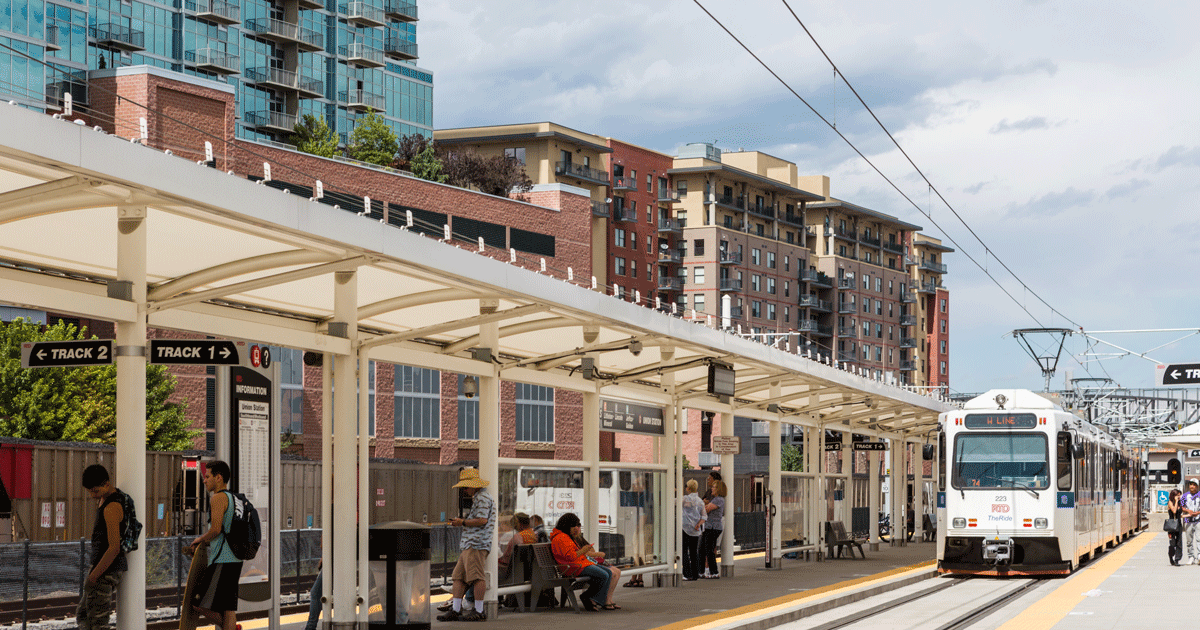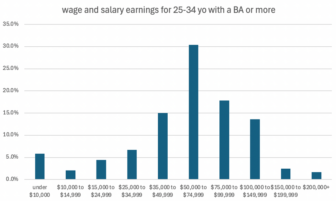A recent Politico article by Colin Woodard that describes how a first-rate transportation system has completely transformed metropolitan Denver has left me with a serious case of RTE – Regional Transit Envy.
Woodard details how Denver business leaders joined forces with environmentalists, civil servants, and elected officials to convince voters to tax themselves to create a light rail system that spans 98 miles and offers riders access to 68 stations along 10 routes. As a result, Denver has the eighth-largest transit system in the country despite ranking 21st in population.
According to Woodard, the rail system has turned “an auto-centric city into a higher-density, tightly integrated urban center that aims to outcompete the bigger, older, coastal cities on the global stage” and he offers an avalanche of evidence that the results in Denver have been transformational:
- Brookings Institution demographer William Frey has named Denver the best (2011) and second- best (2013) city for attracting millennials
- Apartments.com named Denver the best city for college graduates in 2014
- According to 2014 U.S. Census Bureau statistics, Denver has had the highest increase in residents with college degrees
- In 2015, Coldwell Banker named Denver America’s best commercial real estate market
- Forbes magazine named Denver the second-best place to launch a startup in 2014
- And this year, U.S. News and World Report named Denver as the best place to live in America
As Michigan struggles to attract talent and retain millennials, we would be wise to offer strong transit options in our urban hubs. Denver’s leaders figured this out a while ago and are reaping the benefits of their prescience.
Denver’s leaders were able to conceive and create a state of the art transportation system in two decades. Metro Detroit’s leaders are currently in their fifth decade of trying to eke out a cohesive regional transportation strategy. Even in 2016, the same tired voices offer the same lame arguments against regional transit in metro Detroit, calling it too expensive and arguing that it is not needed.
Happily, metro Detroit may be on the brink of leaving these antiquated attitudes behind. Next month, voters in Wayne, Macomb, Oakland and Washtenaw counties will vote on a proposal to authorize the Regional Transit Authority of Southeast Michigan to levy a 1.2 mills property tax assessment for 20 years beginning in 2016 and ending in 2035. If successful, the millage would raise approximately $160 million for the RTA in the first year.
RTA proponents rightly argue that metro Detroit can’t afford to NOT pay for transit if we want to compete with other regions. Transit is woefully underfunded in metro Detroit, which invests only $69 per capita in regional transit. By comparison, Cleveland invests $177 per capita for regional transit.
RTA proponents also easily dispatch with the “regional transit isn’t needed” argument by pointing out that the region’s lack of public transportation options severely limits access to jobs. SEMCOG estimates that 92 percent of jobs in southeast Michigan cannot be reached within 60 minutes using existing transit.
And as the region’s population ages, public transportation will be even more important. According to Transportation for America, 68 percent of seniors aged 65-79 in metro Detroit have poor access to transit, the fourth worst record in the nation.
And then there are those who argue that the creation of an effective regional public transportation system would be a betrayal of southeastern Michigan’s so-called auto culture, a by-product of our fidelity to our signature industry. Smart Michiganders know that our state can’t afford to latch itself to 20th century-style “company town” notions. The most robust local economies in the world are diverse and dynamic, like Denver’s.
When it comes to the value of public transportation, the Motor City can learn a lot from the Mile High City.







